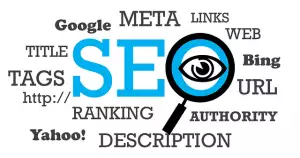SEO Content Optimization is a strategic approach to digital success, focusing on understanding search engines and creating engaging content. Through keyword research, topic relevance, and audience-centricity, websites can boost visibility and attract organic traffic. This involves integrating keywords into compelling headlines, optimizing website structure (Technical SEO), and prioritizing high-quality, user-intent-meeting content (On-Page SEO). Measurement and analysis tools help track the effectiveness of these strategies, ensuring adaptability in a constantly evolving digital landscape.
“Unleash your website’s full potential with our comprehensive SEO Workshop. In this guide, we’ll take you on a journey through the essentials of SEO Content Optimization, the cornerstone of digital success. From understanding core concepts to crafting compelling headlines and optimizing technical aspects, we’ve got you covered. Learn effective keyword strategies, on-page best practices, and analysis tools to elevate your online presence. Discover how to create engaging content that drives rankings and captivates your audience.”
Understanding SEO Content Optimization: The Foundation of Digital Success

SEO Content Optimization is the cornerstone of any successful digital strategy. It involves understanding how search engines crawl, index, and rank web content, and using that knowledge to create valuable, relevant, and optimized content that resonates with both users and algorithms. By integrating carefully chosen keywords, phrases, and topics into your content, you enhance its visibility in search results, driving more organic traffic to your website.
Effective SEO Content Optimization goes beyond mere keyword stuffing. It requires a deep understanding of your target audience’s needs, preferences, and pain points. Crafting compelling, informative, or entertaining content that answers these questions not only satisfies users but also signals to search engines the quality and relevance of your site. This holistic approach ensures that your digital presence is not just noticed by algorithms, but also appreciated by your audience.
Unlocking Keywords: Strategies for Effective Title and Header Crafting

In today’s digital era, understanding the power of keywords is essential for effective SEO content optimization. Unlocking the right keywords can transform your title and header crafting process into a strategic art. Start by conducting thorough keyword research to identify terms that resonate with your target audience. Tools like Google Keyword Planner or SEMrush can help uncover hidden gems—long-tail keywords, in particular, offer great potential as they are more specific and less competitive.
Once you’ve identified relevant keywords, incorporate them naturally into your titles and headers. Remember, these elements serve as the first point of contact between your content and readers. Crafting compelling titles and headers not only captures attention but also provides a clear indication of what the reader can expect. Keep it concise, engaging, and keyword-rich to ensure better search engine rankings and higher click-through rates.
The Art of Headline Writing: Engaging Readers, Boosting Rankings

The art of headline writing is a crucial aspect of SEO content optimization, serving as the first touchpoint between your content and potential readers. A compelling headline captures attention, piques curiosity, and encourages users to delve deeper into your article or blog post. By weaving in relevant keywords naturally, you not only engage your audience but also align your content with search engine algorithms, boosting your rankings on search results pages (SRPs).
Effective headlines are tailored to resonate with the target audience, reflecting their interests, needs, and search intent. They should be concise yet descriptive, providing a glimpse into the value or solution offered within the content. This balance ensures that readers not only click but also find what they’re looking for, leading to lower bounce rates and longer dwell times—signals that search engines consider when evaluating website quality.
Technical Aspects: Optimizing Your Website for Search Engines

Search engine optimization (SEO) is a complex yet essential aspect of digital marketing, and a critical element in ensuring your website ranks high on search engine results pages (SERPs). The technical aspects of SEO involve optimizing your website’s structure and code to make it more accessible and understandable for search engines. This includes ensuring your site is mobile-friendly, has fast loading speeds, and uses XML sitemaps to help search engines crawl and index your content effectively.
One of the key components of Technical SEO is Content Optimization. This involves optimizing individual web pages by conducting keyword research to identify relevant terms your target audience is searching for. Incorporating these keywords naturally into your page’s title, headings, meta descriptions, and content helps search engines understand the context and purpose of your page. Additionally, creating high-quality, unique content that provides value to your visitors can lead to better engagement, reduced bounce rates, and improved search rankings over time.
On-Page SEO Best Practices: A Comprehensive Guide

On-Page SEO is a critical component of any digital marketing strategy, and it involves optimizing individual web pages to rank higher in search engine results pages (SERPs). A comprehensive guide to on-page SEO best practices starts with keyword research, ensuring that relevant keywords are strategically placed throughout your content. This includes not just the main title and headings but also meta descriptions, URLs, and image alt tags.
Next, focus on creating high-quality, engaging content that offers genuine value to your audience. Search engines prioritize content that is well-written, informative, and tailored to user intent. Additionally, optimize for readability by breaking up text with subheadings, using bullet points or lists, and incorporating relevant internal links. These practices not only enhance the user experience but also signal to search engines that your page is authoritative and trustworthy.
Measuring and Analyzing Results: Tools for Evaluating Your SEO Efforts

Measuring and Analyzing Results is a crucial step in any successful SEO strategy. After implementing content optimization techniques, it’s essential to utilize tools that provide valuable insights into your efforts’ impact. These tools offer a comprehensive view of your website’s performance, allowing you to track key metrics such as organic traffic growth, keyword rankings, and user engagement.
By leveraging data-driven analysis, you can identify what’s working and make informed decisions to enhance your SEO Content Optimization. Popular options include Google Analytics for overall website performance, Search Console for keyword tracking and technical issues, and various ranking tools that provide insights into your position compared to competitors. Regularly reviewing these metrics ensures your strategy remains effective and adaptable in the dynamic world of search engine optimization.
